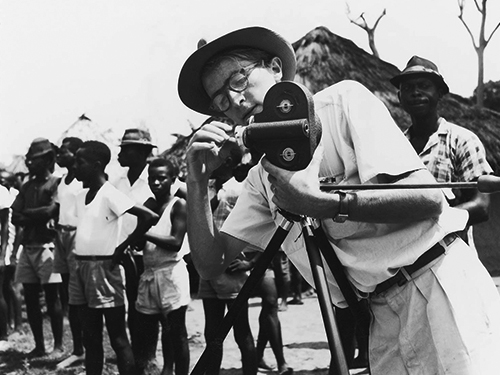
Je zou daarom kunnen zeggen dat zijn kunst de samenleving is, maar dan bekeken vanuit een bepaald temperament, want daaraan ontbrak het de Heusch niet. Dat temperament stelt hem in staat om uit te barsten in een soort van bijtende, ja zelfs burleske geestdrift waarvan bepaalde trekken zich al lieten opmerken in zijn vroegere films. Je hebt goede ogen nodig om de films van de Heusch te bekijken.